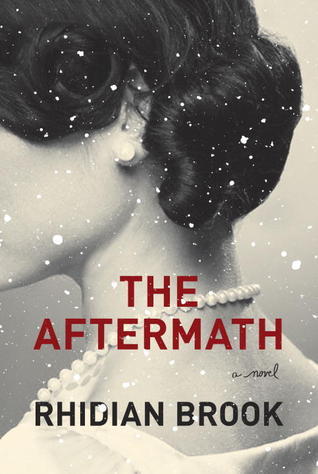What do you think?
Rate this book


288 pages, Hardcover
First published May 2, 2013
Hamburg, 1946. Thousands remain displaced in what is now the British Occupied Zone. Charged with overseeing the rebuilding of this devastated city and the de-Nazification of its defeated people, Colonel Lewis Morgan is requisitioned a fine house on the banks of the Elbe, where he will be joined by his grieving wife, Rachael, and only remaining son, Edmund.This is certainly one of the best WWII books I have read in a very long time.
But rather than force its owners, a German widower and his traumatized daughter, to leave their home, Lewis insists that the two families live together. In this charged and claustrophobic atmosphere all must confront their true selves as enmity and grief give way to passion and betrayal.
...And, with this, Lewis delivered the first of his killer statistics: 'Do you know that we dropped more bombs on Hamburg in a weekend than the Germans dropped on London in the entire war?’ He said it to Edmund, but he wanted Rachael to hear it, wanted her to take in its full force; to eliminate the prejudice and self-pity. Almost on cue, the ruination of Hamburg opened up around them, and if, at first, it looked no different to the mental pictures they had of London, Coventry, Bristol, the scale of it accumulated with every yard. There were no standing structures ahead of them, behind them or on either side, only rubble, and rivers of people moving at the side of the road. ‘They started it, though, didn’t they, Father?’In The Aftermath Germany is once again paying the price of war, and the circumstances in the country was just as terrible as other countries, or even worse.
Lewis nodded. Of course. They started it. They started it when their grievances were stirred in a pot by a conjurer; they started it with every arm raised and armband worn, with every rally attended and road built, with every utterance applauded; they started it with every shop smashed, every plane launched and bomb dropped. They started it. But where were they? Where was the master race that swallowed continents now? Surely it wasn’t these pathetically clad, feeble-limbed troglodytes plodding along at the side of the shattered road?
-0-
'At least they're less trouble when they're hungry,' Burnham said, offering a mirthless smile.
-0-
' Have you seen the people at the gates? Do you look at those waifs and strays, those skeletal, yellow, stinking, homeless people bowing and fawning and scraping for food and shelter and think: By God, yes, I must remind these people that they have been defeated?'
“Rachel could find no solace in other people’s tales of woe. Pain was uniquely one’s own, and undiminished by a democracy of suffering”
